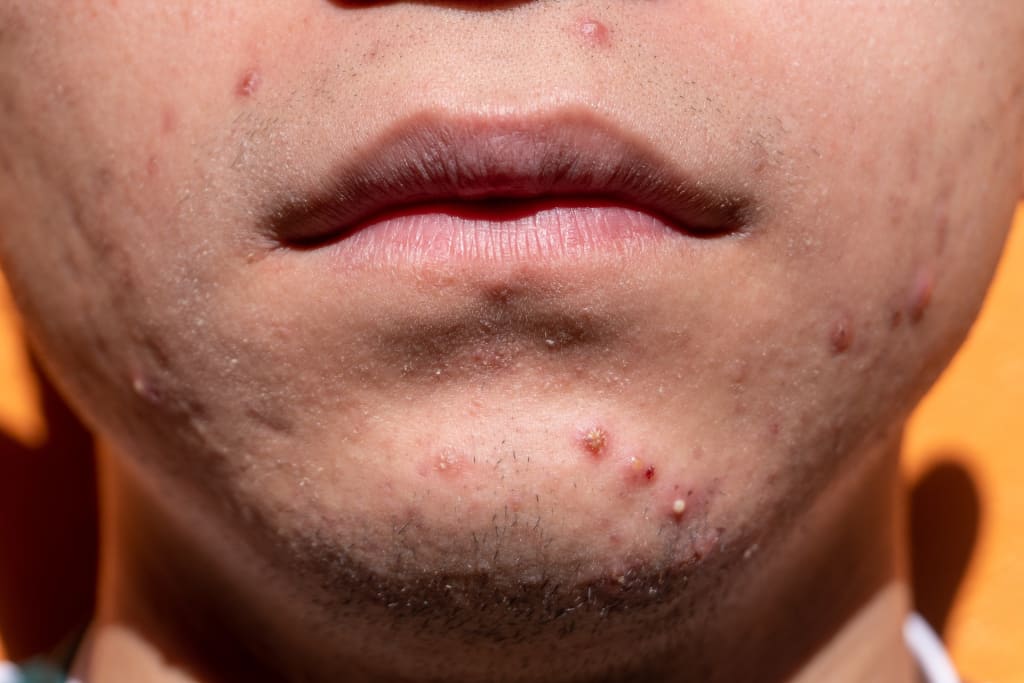Acne
The Ultimate Guide to Clear Skin

Acne is a common skin condition that affects millions of people worldwide. From teenagers to adults, this pesky skin problem can cause significant physical and emotional distress. In this comprehensive guide, we'll discuss everything you need to know about acne, from its causes and symptoms to the best treatments and preventive measures.
Understanding Acne
Acne is a chronic inflammatory skin condition that occurs when hair follicles become clogged with oil and dead skin cells. This results in the formation of pimples, blackheads, whiteheads, and other types of blemishes on the skin. Acne usually appears on the face, neck, chest, and back, but it can occur anywhere on the body.
Acne is more common in teenagers due to hormonal changes that stimulate the production of sebum, a type of oil that clogs pores. However, acne can also affect adults of all ages, especially women who are going through hormonal changes like pregnancy, menopause, or the use of certain medications.
Causes of Acne
The exact causes of acne are not fully understood, but several factors are known to contribute to its development. These include:
• Hormonal imbalances
• Excessive sebum production
• Bacterial infection
• Genetics
• Stress
• Poor diet and lifestyle habits
Exploring the Causes, Treatments, and Misconceptions of Acne Free Ebook
Symptoms of Acne
Acne can present in many different ways, depending on the severity and type of blemish. Common symptoms of acne include:
• Whiteheads - small, round, white bumps on the skin
• Blackheads - small, dark bumps on the skin caused by clogged pores
• Papules - small, red bumps on the skin
• Pustules - red, inflamed bumps with a white or yellow center
• Nodules - large, painful bumps beneath the skin's surface
• Cysts - large, pus-filled bumps beneath the skin's surface
Exploring the Causes, Treatments, and Misconceptions of Acne Free Ebook
Treatment Options for Acne
There are many different treatments available for acne, depending on its severity and type. Mild acne can often be managed with over-the-counter treatments like benzoyl peroxide or salicylic acid. These medications work by reducing inflammation and unclogging pores.
Moderate to severe acne may require prescription medications like antibiotics, retinoids, or hormonal therapies. In some cases, isotretinoin, a powerful medication that reduces sebum production, may be necessary.
Preventive Measures for Acne
Preventing acne requires a combination of good skincare habits and healthy lifestyle choices. Here are some tips to prevent acne:
• Wash your face twice a day with a gentle cleanser
• Avoid using harsh scrubs or abrasive tools on the skin
• Use non-comedogenic skincare and makeup products
• Avoid touching your face or picking at pimples
• Eat a healthy diet rich in fruits, vegetables, and whole grains
• Exercise regularly to reduce stress and promote healthy skin
Exploring the Causes, Treatments, and Misconceptions of Acne Free Ebook
Conclusion
Acne is a common skin condition that can have a significant impact on a person's physical and emotional well-being. By understanding its causes and symptoms and taking preventive measures, you can manage and even prevent acne. With the right treatment, you can achieve clear, healthy skin and boost your confidence.
FAQs
Q: Can stress cause acne?
A: Yes, stress can contribute to the development of acne by increasing sebum production and inflammation in the skin.
Q: Are there any natural remedies for acne?
A: Some natural remedies like tea tree oil, aloe vera, and green tea have shown promising results in reducing acne symptoms, but more research is needed to confirm their effectiveness.
Q: Can diet affect acne?
A: While there is some evidence to suggest that certain foods may contribute to acne, such as dairy and high-glycemic-index foods, the research is inconclusive. It's still important to eat a healthy and balanced diet to maintain overall health, but it's unclear whether dietary changes alone can prevent or treat acne.
Q: Can acne be a sign of an underlying health condition?
A: In some cases, acne can be a symptom of an underlying health condition, such as polycystic ovary syndrome (PCOS) or hormonal imbalances. If you have acne that is severe, persistent, or accompanied by other symptoms, it's important to consult with a healthcare provider to determine whether an underlying health condition may be contributing to your acne.
Exploring the Causes, Treatments, and Misconceptions of Acne Free Ebook
About the Creator
John Stallenberg
https://heylink.me/Geebua2Hustle/






Comments
There are no comments for this story
Be the first to respond and start the conversation.